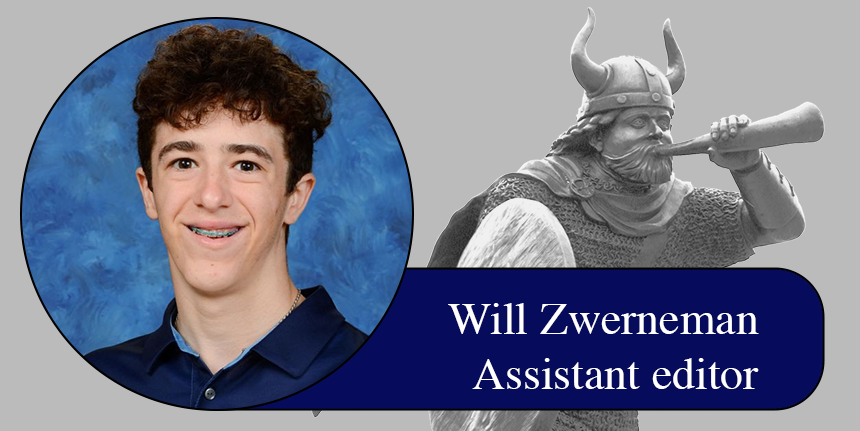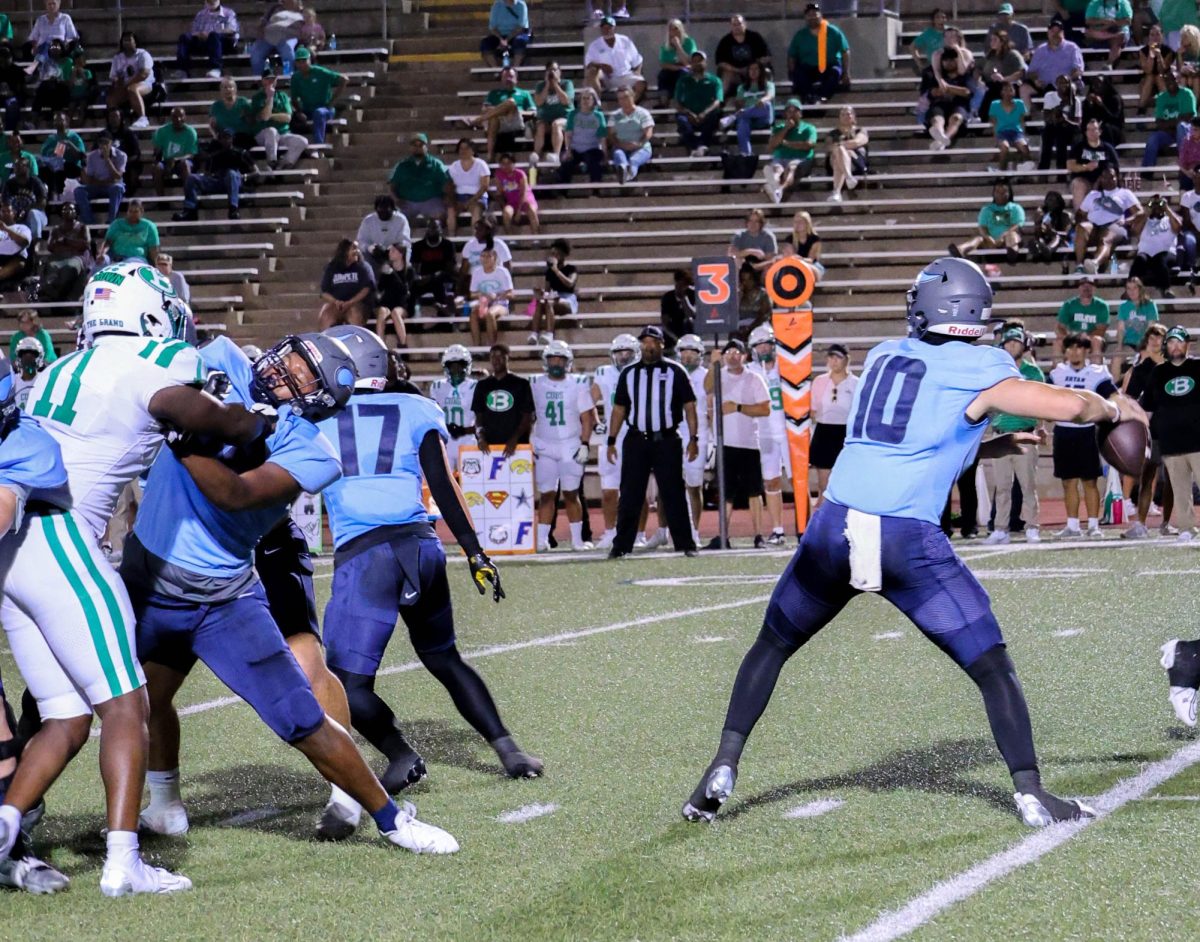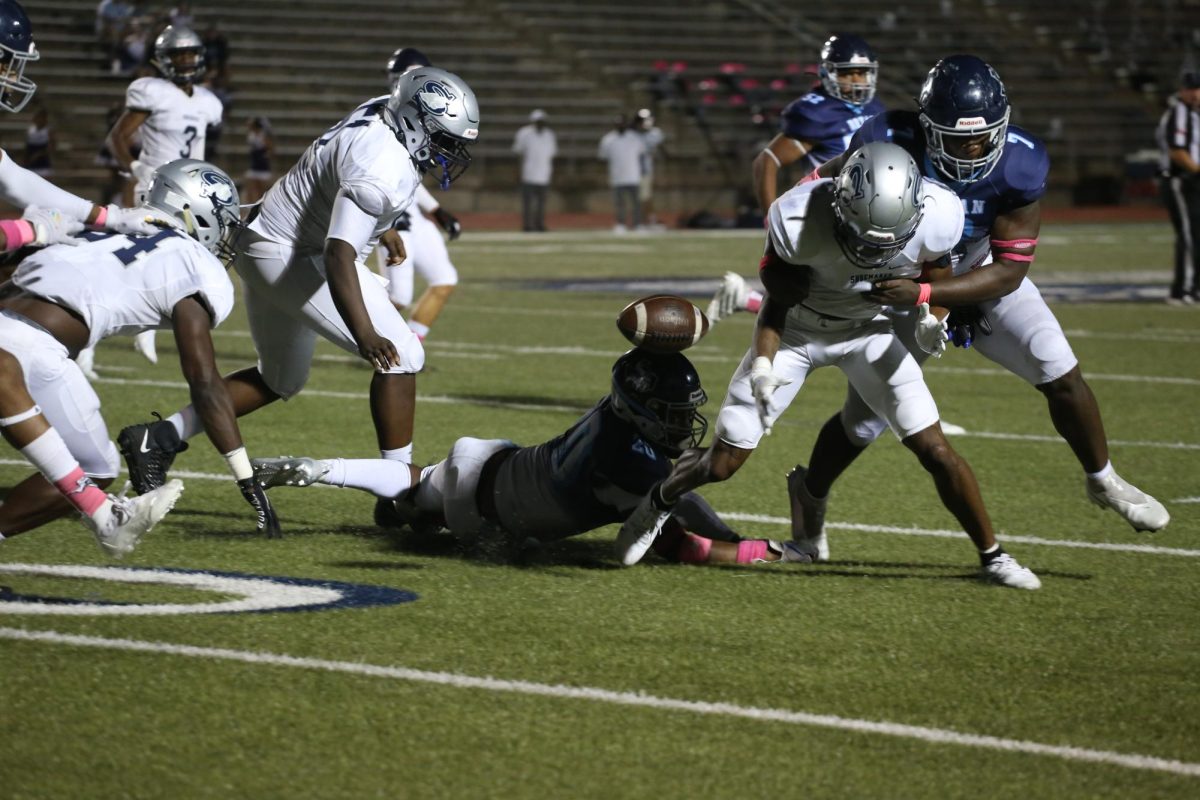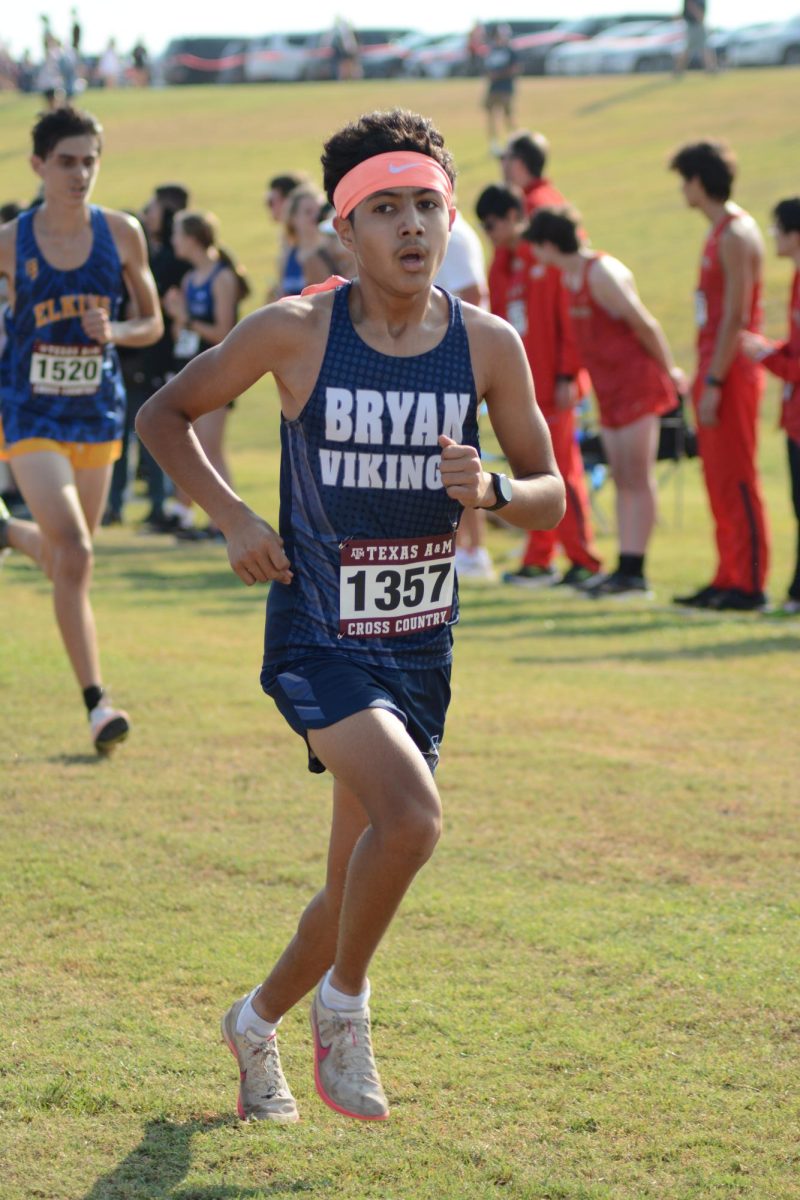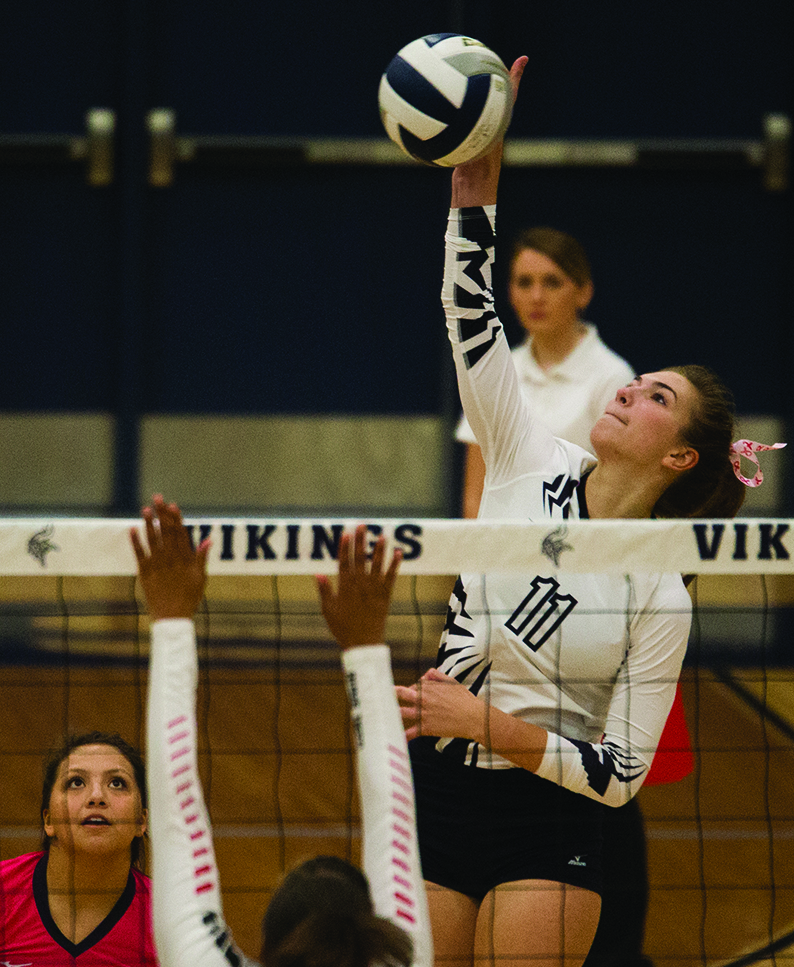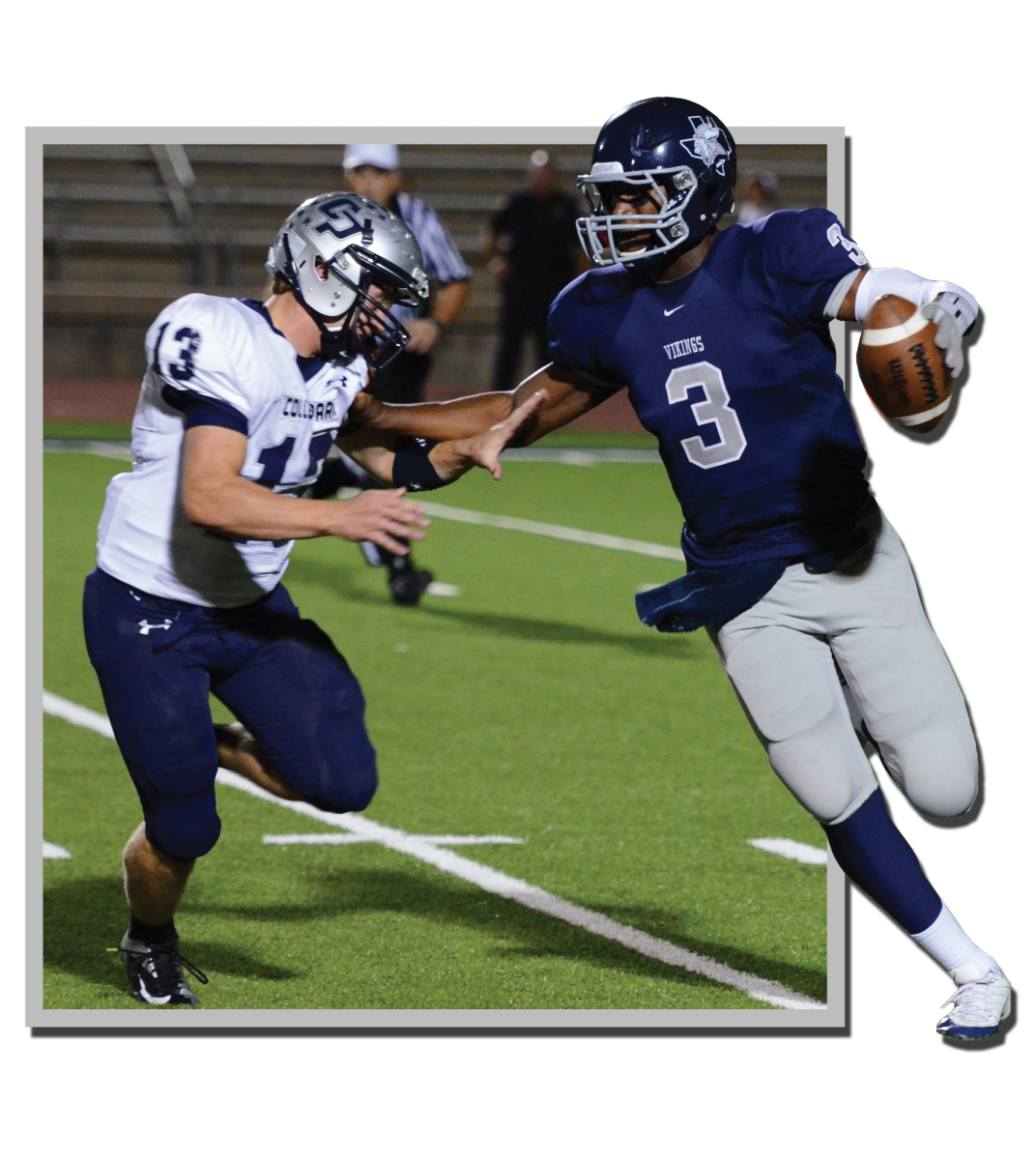The baton of leadership is passed down to the next generation of the track team. The veterans accept it, with intentions of endorsing what is expected of members and serve as role models. The veterans encourage the rest to step up to replace them and continue the legacy. As the baton progresses into the hands of the new members, revitalized potential emerges to push the team to succeed. The track team exemplifies leadership for new members through veterans and successes of younger members as motivation to the whole team to push themselves and step into the shoes of the adept members, continuing the prophecy of hard work.
Senior Brian Lyster and freshman Gus Hancock symbolize the collaboration that is vital to every group: an example for younger members to look up to and an incentive to push to be great even in early years of membership.
“Brian has progressed over the last two years in our track program as being someone who shows up everyday with the idea of working to be better than he was the day before,” boys track coach Richard Page said. “He had no trouble getting into the flow of track [from football] since he was returning from the previous season. He stepped in quickly and made a huge difference in our overall team atmosphere and brought an example of solid work ethic to make those around him work harder.”
Alongside Brian, Gus has had his opportunity to show his potential and skills to coaches as well. Following in Brian’s footsteps, Gus developed a name for himself and has exemplified the values of the team.
“Gus has always had a great attitude and a strong work ethic,” 800 meter track coach Chris Biggs said. “Those characteristics have only improved as his track season has progressed. His teammates respect and admire him because he comes to practice to get better, and doesn’t just go through the motions, but gives great effort which spreads throughout the team. As a freshman, Gus provides the right kind of peer pressure to his teammates [to push them].”
With an incentive of leadership emerging into the team, Brian will leave many responsibilities to those following after him and taking over his role on the team.
“Brian’s work ethic shows as he improves every week,” Page said. “It came as no surprise to his peers and his coaches. [He] is a testament to [what it means] to be on the track team.”
With strong discipline skills, a need to succeed, and a passion for running, Gus has encouraged his peers to not give up and to push past negative mentalities.
“Gus loves running track,” Page said. “His love of the sport has provided a spark that other kids have picked up on [because his] personality draws people in. It is important for young athletes to have success because it builds an enthusiasm inside oneself and enthusiasm for their contributions to help the team.”
Brian has pushed himself and the team to improve. With distinct success in the teams’ 2015 season, Brian has used it to fuel his work ethic.
“[I was] one of the only seniors this year, and I thought it was important to get out there and have everyone train hard to get ready for the season and district,” Brian said. “We actually had some make it at regionals, so it ended up paying off well. There’s always a need for a senior on the team just to push everyone really hard.”
Following after a strong role model, Gus has applied his advice and motivation in competition. After advancing to state with a personal best time, Gus has thrived in his first year of high school track.
“I‘ve learned a lot [from Brian],” Gus said. “[I’ve learned] to keep working and not give up no matter how tired [I am]. I’ve learned how to be a good leader, how to control myself, and that I have to be respectful. Being a freshman going [to state] is really something. I didn’t expect to go to state, so I’m proud of myself, my coaches and parents.”
Both Brian and Gus, along with team coaches, have recognized the importance that relationships between the old and new hold. The overall betterment of the team depends upon influential veterans and consistent younger members.
“Anytime you can have the dynamic relationship of a mentor and a protege, everyone wins,” Page said. “The younger athlete can learn from the mentor, and the mentor becomes a better teacher, which allows them to develop a deeper understanding as well. This can’t have anything but a positive outcome for the team. That was the relationship that Brian and Gus had this year.”

